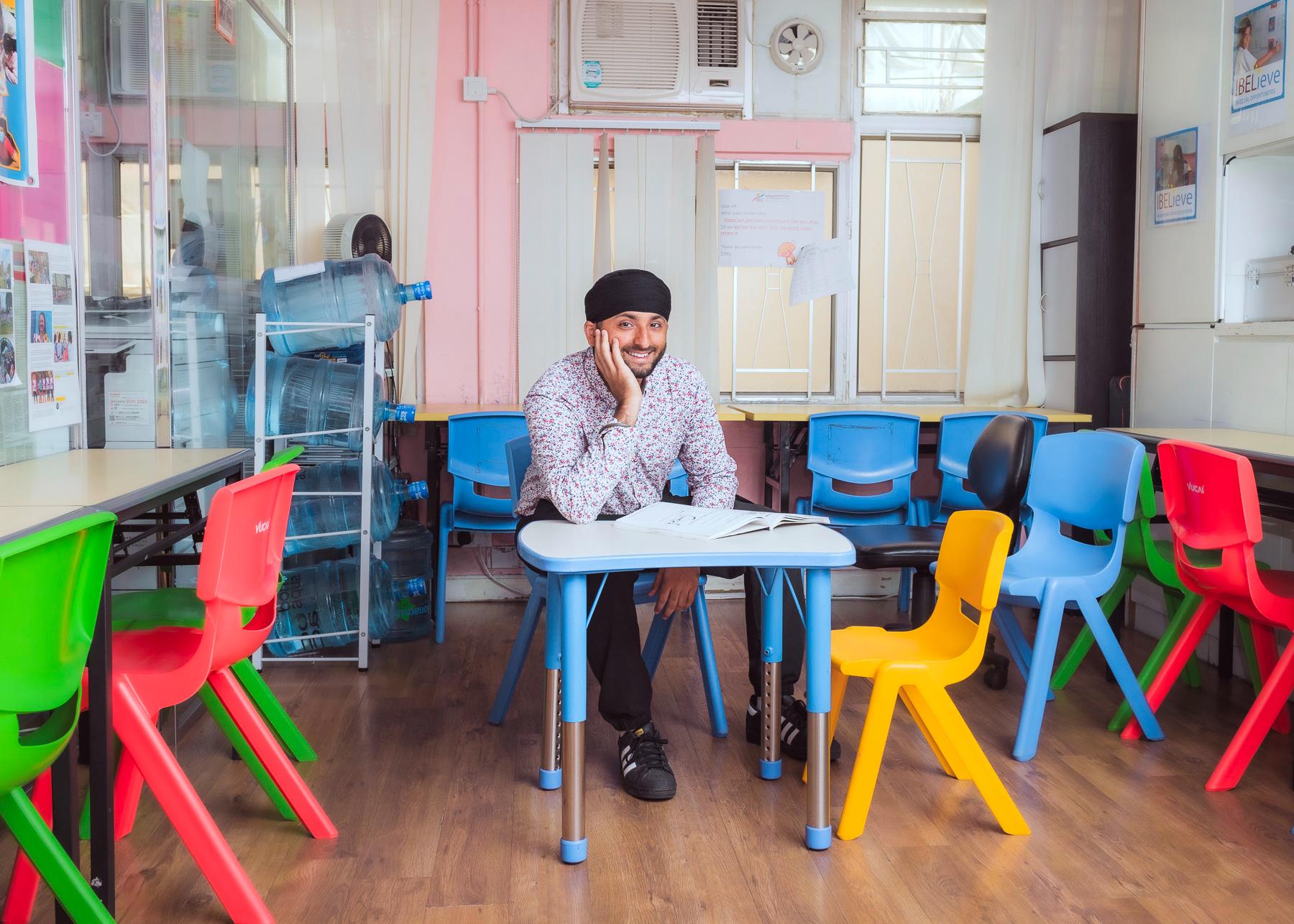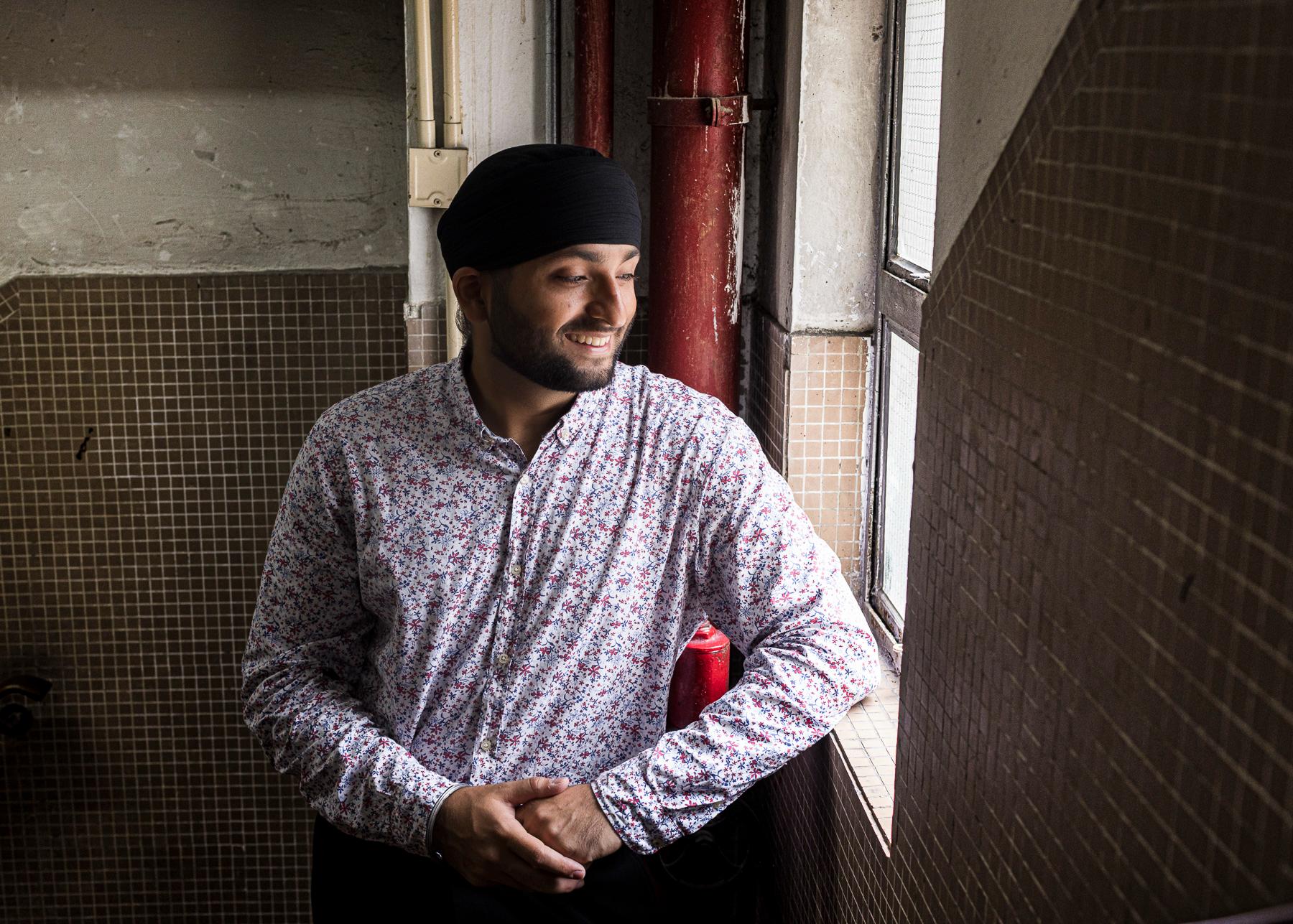“I was born in Hong Kong, spent my early years in India and moved back to HK as a young child. The primary school that I attended was full of ethnic minority students and only in secondary school did I have the chance to study Chinese properly with my local peers. In Hong Kong, not many ethnic minority kids get the opportunity to study Chinese, many of them are excluded from local kindergartens because their mother tongue is not Chinese. It makes it so difficult for them to fully immerse in local culture - they don’t speak Cantonese at school, at home or on the streets; they just don’t have the chance to practise. This has a knock-on effect on their education opportunities, job prospects and overall quality of life. I strongly believe that ethnic minorities should be given equal access to education from a young age, and that the education system should support that rather than create more obstacles. Many of us are born and raised here, we have Hong Kong friends and we’re Hongkongers - so why can’t we learn Chinese?
「我喺香港出世,早年喺印度成長,直至童年,我再度移居香港生活。我讀嗰間小學只有少數族裔學生,直到中學我先有機會同本地學生正式學中文。喺香港,只有為數不多嘅少數族裔兒童有機會學中文,本地有好多幼稚園會因為學童嘅母語唔係中文而拒絕錄取。少數族裔兒童喺學校、屋企、街上唔會講廣東話,無機會畀佢哋練習,導致佢哋難以完全融入本地文化。長久以嚟,會逐漸影響佢哋嘅求學機會、職業前途,甚至牽連整體生活品質。我認為政府應該給予少數族裔從小接受平等教育嘅機會,教育系統亦應提供更多支援,而非增設入學門檻。我哋大多數人都喺香港土生土長,有香港朋友,亦係香港人,咁點解唔畀我哋學中文呢?
“Here at IBEL, we try to break the cycle of this language based exclusion. I work as a part time tutor for ethnic minority kids between 6-13 years old. We help them with their homework, language assignments and also organise field trips and activities - theme parks, rugby training, museum visits, cultural events…We want to help our students not only thrive academically but also to develop well-rounded soft skills. Each activity gives them the opportunity to use their Chinese to interact with the community. When the kids first join our classes they sometimes really struggle, especially with Chinese writing, because they have no one to help them at home or at school. Once, I was tutoring a kid who had to prepare for his Chinese dictation. He said that he couldn’t pronounce or read any of the words - so I sat down with him to write the meanings and tones down for him, and we went through it all together. He was able to read everything after our session - it’s these small shifts that I see in our students that bring me a lot of fulfilment.”
”When people ask me where I’m from, it’s always hard to answer - I’m a Sikh, Punjabi, Indian Hongkonger. If I identify with only one aspect of this identity, there is bound to be someone who thinks that I’m lacking a sense of belonging to another community. I am happy to say that I have different, interconnected identities, and that I speak Punjabi, Hindi, English and Cantonese fluently. I’m just a regular Hong Kong guy. Outside of tutoring I also work part time at a convenience store, and help out at my dad’s grocery store. I love to play basketball, football and take the ferry to Cheung Chau! Ethnic minorities are also Hongkongers, we have a strong sense of belonging to Hong Kong, we do speak Chinese and want to speak Chinese - so try to engage with us and don’t assume that we are strangers!”
.
「喺IBEL,我哋嘗試打破語言造成嘅隔閡。我喺IBEL兼職幫6至13歲嘅少數族裔學童補習,輔導佢哋做功課、語言練習,亦會舉辦遊學團以及各類活動,譬如參觀主題樂園、博物館、參加橄欖球訓練、文化交流等等。我哋唔單止想喺學業上幫到學生,同時希望幫學生建立全面嘅軟技能。每項課外活動都有機會畀佢哋用中文與社區交流。有唔少學生啱啱開始上堂嗰陣好難跟得上,特別寫中文寫作,因為無論係屋企定學校,都無人教到佢哋。有次,我幫個小朋友預備中文默書,佢話佢無隻字睇得明、識得讀。我就逐隻字解釋畀佢聽,教佢點樣發音,最後佢成功記熟晒啲中文字。落堂時,佢已經睇得明了。見證住學生慢慢進步,令我感到莫大滿足。」
「每當有人問起我嘅身世背景,我總係覺得好難解釋,因為我同時係錫克族人、旁遮普人、印度人同香港人。如果我對於自己嘅身分認同淨係得一種,其他人好可能會認為我對其他族群毫無歸屬感。我好慶幸自己擁有唔同但互相扣連嘅身分認同,我亦講得一口流利嘅旁遮普語、印度語、英語同廣東話。到頭來,我只係個平凡嘅香港人。除咗幫小朋友補習,我平時會喺便利店做兼職,又會喺我爸爸嘅雜貨店幫手。我鍾意打籃球、踢波,同埋搭渡輪去長洲玩。其實少數族裔都係香港人,我哋對香港好有歸屬感㗎!我哋亦識講中文,而且好肯講。所以,大家應該多啲同我哋來往,千祈唔好當我哋係外人呀!」
Story sponsored by

.
Previous Story
Mind HK
Next Story
The Nature Conservancy




